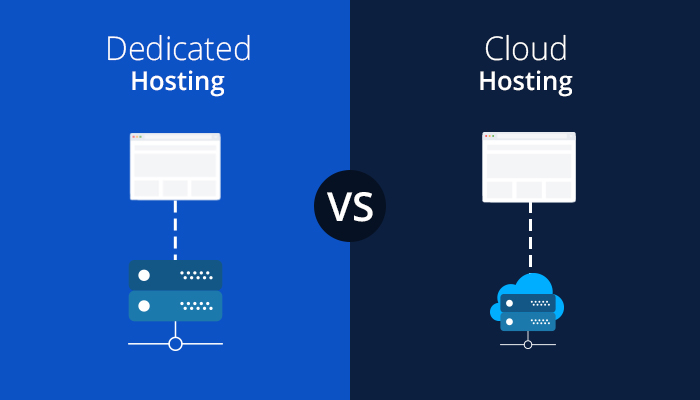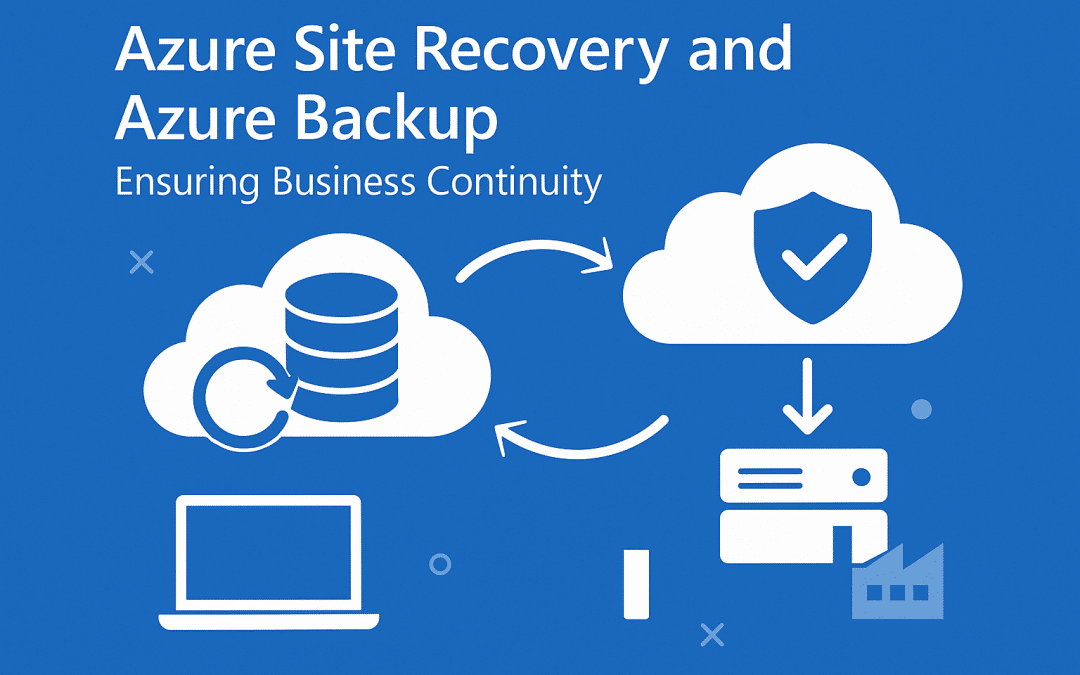Cloud Hosting vs. Dedicated Hosting
Read this article to learn about, ‘Cloud Hosting vs. Dedicated Hosting’.
What is Cloud Hosting?
The performance, safety, and control of cloud servers can be customized to be comparable to those of a dedicated server. Instead of being stored on dedicated hardware, your cloud-hosted resources are hosted in a shared “virtualized” environment. Sharing gear with other customers allows you to take advantage of economies of scale. And you pay just for the actual storage space you employ. If you’re using cloud servers, you can increase or decrease your resources on the fly to meet fluctuating demand without incurring unnecessary expenditures for unused capacity.
Optimizing IT performance without the astronomical expenses of buying and maintaining dedicated equipment is now possible with cloud servers. The flexibility and scalability of cloud servers make them a good fit for businesses with fluctuating workloads and needs.
By storing information across a network of servers rather than on a single machine, “cloud hosting” makes hosting websites more efficient. In the cloud computing model, users control their data via a “virtual machine” that connects to numerous remote servers. One key distinction between cloud hosting and dedicated hosting is that the former makes use of the resources of several computers.
To meet the scalability needs of the largest websites in the world, it is the duty of DevOps teams at software companies like Google, Facebook, Microsoft, Oracle, and IBM, and at hosting companies like Liquid Web, Rackspace, and Amazon. These improvements in web server network management applications are the basis for many of the new retail dedicated cloud hosting plans accessible to small business website publishing support.
What is Dedicated Hosting?
Dedicated servers are physical computers that are rented or acquired for use by a single company. Dedicated servers are most commonly employed by major enterprises and government agencies with stringent data security requirements or by firms with consistent, high demands for server capacity.
Businesses still require internal IT resources and experience to manage regular maintenance, fixes, and upgrades when using dedicated servers. Bare metal dedicated hardware is extremely useful for businesses running I/O-intensive software like databases and large data platforms.
Cloud Hosting vs. Dedicated Hosting
When deciding how to host their website, businesses should weigh the benefits of both dedicated servers and cloud hosting. Each server has its advantages and disadvantages, but in the end, it comes down to how well it meets the demands of a specific company.
Cloud hosting solution provides web server resource scaling choices for small businesses at prices that are competitive with dedicated server hardware for heavy traffic websites.
Many cloud platforms only support a single web server stack, which is incompatible with the specialized software needed to run older web applications and databases. To improve web server performance at scale with the built-in page caching, most cloud hosting plans include a “plug and play” PaaS option that may be easily adopted by small business owners.
Dedicated servers supply the bare-bones hardware resources needed to build advanced, database-driven online and mobile apps, on which programmers can then install the supplementary languages, tools, utilities, and third-party frameworks they need.
Advantages of Cloud Hosting
The main benefits of cloud hosting plans are pre-installed elastic web server support and specially made stack software optimized for content management system (CMS) websites running on LAMP. This is even though there is a huge variety of cloud hosting plans, platforms, and facilities, each of which is unique to the organization and programming team developing it for the market.
When compared to shared hosting, cloud hosting provides CMS websites with more RAM, CPU cores, and I/O processes while letting each site scale to consume more resources on-demand to meet the needs of their specific amount of web traffic. This guarantees “always-on” accessibility of websites regardless of traffic levels and improved page load times under typical conditions of common use.
Disadvantages of Cloud Hosting
Unlike with a dedicated server plan, systems administrators and web developers may not have as much freedom with retail cloud hosting under the PaaS model to modify the web server stack software installation to build custom solutions.
For instance, retail PaaS cloud hosting plans don’t let you customize the operating system or install third-party web server platform software like Nginx, Tomcat, Hadoop, Lightspeed, or Lighttpd.
However, snapshot services make it simple to tailor your web server stack on the go with a “pay as you go” cloud hosting plan from AWS, Google Cloud, or another provider. The cloud computing services provided with more stack flexibility need experience in systems administration and the best solution to VPS plans but managed WordPress hosting and retail cloud plans with LAMP PaaS options are typically simpler to use for SMEs making the switch from shared hosting to improve performance.
Advantages of Dedicated Hosting
The ability to personalize settings is a major benefit of dedicated servers. For businesses with high traffic demands or that operate complex applications, the ability to tailor a server to their specific requirements is sometimes more significant than the slight financial premium offered by cloud hosting.
To support sophisticated applications, web developers and programmers need access to dedicated server hardware. The web server’s OS, the programming language’s extensions, the performance-boosting utilities, such as sophisticated page caching systems, and the database framework used can all be changed.
To construct new applications or support legacy software online with specific runtime needs, developers in Java, ASP.NET, Node.js, PHP, and Python need access to dedicated server hardware that can be fully customized. High volumes of website traffic from industries like e-commerce, media, publishing, promotions, and more can be accommodated by dedicated servers with the right configuration.
Disadvantages of Dedicated Hosting
The primary drawback of dedicated servers is, that in an unmanaged setup, the onus of web security, including OS and extension framework updates, falls squarely on the shoulders of the systems administrator.
Some businesses may not be able to tolerate the risk of having unauthenticated workers access sensitive data due to the constant updates performed by remote technicians in the data center on dedicated servers with a managed stack software environment.
Even though it is difficult to mimic the speed of fiber optic network resources in a world-class data center or international colocation facility, the cost of leasing remote dedicated servers can be higher than buying and deploying the hardware locally.
When it comes to running a business website, having faith in the web host means putting your faith in a third-party team for support, technical help, and debugging in operations that can be mission-critical. However, not every hosting business is guaranteed to be consistent in this at a level to be trustable, which can lead to lost revenue or unscheduled downtime for the web server.
Cloud Hosting vs. Dedicated Hosting: Which one is better?
CONCLUSION
While cloud hosting plans’ allotment of server resources is scalable because it’s based on hardware virtualization, dedicated server plans give each application its dedicated server with its RAM, CPU, and SSD/HDD storage, which can improve performance and security. Even more advanced is hybrid dedicated cloud hosting, which pools the shared resources of multiple child servers under a single parent server’s sole control.
Cloud hosting plans offer “elastic scaling,” or the automatic provisioning of additional resources like CPU cores, RAM, and database instances in response to spikes in website traffic, saving business owners the trouble of upgrading to a dedicated server.
This, in conjunction with a “pay as you go” model or low fixed-rate invoicing, can be more time- and cost-effective than manually forecasting server overcapacity to balance peak and off-peak periods of website traffic.
For many commercial websites, the potential to install a custom webserver software stack platform to accommodate required third-party programming language and database extensions for complicated online and mobile applications with bespoke code is the most significant feature of web hosting.
Dedicated servers were formerly the best option, but now there are cheaper and more flexible cloud computing alternatives for developing software for small businesses. This adds further nuance to the discussion over whether or not to use a cloud server versus a dedicated server.
Retail PaaS cloud hosting solutions offer small and medium-sized enterprises (SMEs) the same enterprise-grade services that the largest firms in the world rely on to run their massive online operations, at a fraction of the price of equivalent dedicated hardware.
After reading this article, you might have got a good idea about, Cloud Hosting vs. Dedicated Hosting. You can read this article to learn about, VPS Hosting vs. Dedicated Hosting.
You can also read this article to learn how to buy Admin RDP. Visit our website of 99rdp.com to know about the pricing plans of Cheap RDP.




